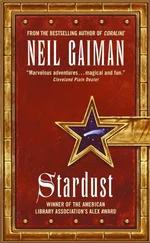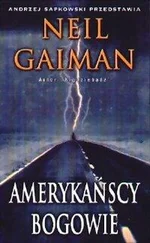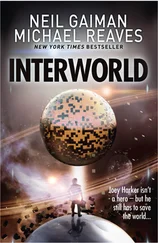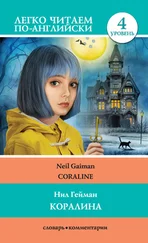Smoke Mirrors - Neil Gaiman
Здесь есть возможность читать онлайн «Smoke Mirrors - Neil Gaiman» весь текст электронной книги совершенно бесплатно (целиком полную версию без сокращений). В некоторых случаях можно слушать аудио, скачать через торрент в формате fb2 и присутствует краткое содержание. Жанр: на английском языке. Описание произведения, (предисловие) а так же отзывы посетителей доступны на портале библиотеки ЛибКат.
- Название:Neil Gaiman
- Автор:
- Жанр:
- Год:неизвестен
- ISBN:нет данных
- Рейтинг книги:3 / 5. Голосов: 1
-
Избранное:Добавить в избранное
- Отзывы:
-
Ваша оценка:
- 60
- 1
- 2
- 3
- 4
- 5
Neil Gaiman: краткое содержание, описание и аннотация
Предлагаем к чтению аннотацию, описание, краткое содержание или предисловие (зависит от того, что написал сам автор книги «Neil Gaiman»). Если вы не нашли необходимую информацию о книге — напишите в комментариях, мы постараемся отыскать её.
Neil Gaiman — читать онлайн бесплатно полную книгу (весь текст) целиком
Ниже представлен текст книги, разбитый по страницам. Система сохранения места последней прочитанной страницы, позволяет с удобством читать онлайн бесплатно книгу «Neil Gaiman», без необходимости каждый раз заново искать на чём Вы остановились. Поставьте закладку, и сможете в любой момент перейти на страницу, на которой закончили чтение.
Интервал:
Закладка:
One Life, Furnished in Early Moorcock
When I was asked to write a story for an anthology of Michael Moorcock's Elric stories, I chose to write a story about a boy a lot like I was once and his relationship with fiction. I doubted I could say anything about Elric that wasn't pastiche, but when I was twelve, Moorcock's characters were as real to me as anything else in my life and a great deal more real than, well, geography lessons for a start.
"Of all the anthology stories, I liked your story and Tad Williams's the best," said Michael Moorcock when I ran into him in New Orleans several months after finishing the story. "And I liked his better than yours because it had Jimi Hendrix in it."
The title is stolen from a Harlan Ellison short story.
I've worked in a number of different media over the years. Sometimes people ask me how I know what medium an idea belongs to. Mostly they turn up as comics or films or poems or prose or novels or short stories or whatever. You know what you're writing ahead of time.
This, on the other hand, was just an idea. I wanted to say something about those infernal machines, computers, and black magic, and something about the London I observed in the late eighties-a period of financial excess and moral bankruptcy. It didn't seem to be a short story or a novel, so I tried it as a poem, and it did just fine.
For The Time Out Book of London Short Stories I reformatted it as prose and left a lot of readers very puzzled.
The Sweeper of Dreams
This one began with a Lisa Snellings statue of a man leaning on a broom. He was obviously some kind of janitor. I wondered what kind, and that was where this story came from.
This is another early story. I wrote it in 1984, and I did the final draft (a hasty coat of paint and some grouting in the nastiest cracks) in 1989. In 1984 I couldn't sell it (the SF mags didn't like the sex, the sex mags didn't like the disease). In 1987 I was asked if I would sell it to an anthology of sexual SF stories, but I declined. In 1984 I had written a story about a venereal disease. The same story seemed to say different things in 1987. The story itself might not have changed, but the landscape around it had altered mightily: I'm talking about AIDS here, and so, whether I had intended it or not, was the story. If I was going to rewrite the story I was going to have to take AIDS into account, and I couldn't. It was too big, too unknown, too hard to get a grip on. But by 1989 the cultural landscape had shifted once more, shifted to the point where I felt, if not comfortable, then less uncomfortable about taking the story out of the cabinet, brushing it down, wiping the smudges off its face, and sending it out to meet the nice people. So when editor Steve Niles asked if I had anything unpublished for his anthology Words Without Pictures, I gave him this.
I could say that it wasn't a story about AIDS. But I'd be lying, at least in part. And these days AIDS seems to have become, for good or evil, just another disease in Venus's armoury.
Really, I think it's mostly about loneliness, and identity, and, perhaps, it's about the joys of making your own way in the world.
Vampire Sestina
My only successful sestina (a verse form in which the last word of each of the first six lines repeat in ever-changing sequence over the next verses and in one three-line endpiece). First published in Fantasy Tales and reprinted in Steve Jones's Mammoth Book of Vampires, for years this was my only piece of vampire fiction.
This story was written for the Pete Crowther-edited Touch Wood, an anthology about superstitions. I'd always wanted to write a Raymond Carver short story; he made it look so easy. Writing this story taught me that it wasn't.
I'm afraid I actually did hear the radio broadcast mentioned in the text.
The Sea Change
I wrote this in the top flat of a tiny mews house in Earls Court. It was inspired by a Lisa Snellings statue and by the memory of the beach at Portsmouth when I was a boy: the dragging rattle that the sea makes as the waves pull back over the pebbles. I was writing the last part of Sandman at the time, which was called "The Tempest", and bits of Shakespeare's play rattle through this as well, just as it rattled through my head back then.
I had agreed to write a story for an anthology of short stories about gargoyles, and, with the deadline rapidly approaching, was feeling rather blank.
Gargoyles, it occurred to me, were placed over churches and cathedrals to protect them. I wondered if a gargoyle could be placed over something else to protect it. Such as, for example, a heart…
When We Went to See the End of the World by Dawnie Morningside, age 11 1/4
Alan Moore (who is one of the finest writers and one of the finest people I know) and I sat down one day in Northampton and began talking about creating a place that we would want to set stories in. This story is set in that place. One day the good burghers and honest townsfolk of Northampton will burn Alan as a warlock, and it will be a great loss to the world.
One day a cassette tape arrived from Robin Anders, best known as drummer for Boiled in Lead, with a message, telling me that he wanted me to write something about one of the tracks on the tape. It was called "Desert Wind". This is what I wrote.
Tastings
This story took me four years to write. Not because I was honing and polishing every adjective, but because I'd get embarrassed. I'd write a paragraph and then I'd leave the story alone until the red flush had faded from my cheeks. And four or five months later I'd go back and write another paragraph. I began writing the story for Ellen Datlow's Off Limits: Tales of Alien Sex, an erotic SF anthology. I missed the deadline for that, carried on writing it for the sequel. Managed about another page or so before I missed the deadline for that as well. Somewhere in there I phoned Ellen Datlow up and warned her that, in the event of my untimely death, there was a half-finished pornographic short story on my hard drive in a file called DATLOW and that it was nothing personal. Two more anthology deadlines came and went, and, four years from the first paragraph, I finished it and Ellen Datlow and her partner in crime Terri Windling took it for Sirens, their collection of erotic fantasy stories.
Most of this story came about from wondering why people in fiction never seem to talk while making love or even while having sex. I don't think that it's erotic, but once the story was, finally, finished, I stopped finding it embarrassing.
I was trying to imagine the very last book of the Bible.
And on the subject of naming animals, can I just say how delighted I was recently to discover that the word " yeti ", literally translated, apparently means "that thing over there". ("Quick, brave Himalayan Guide-what's that thing over there?"
"Yeti."
"Gosh, really?")
Babycakes
A fable, written for a publication to benefit People for the Ethical Treatment of Animals (PETA). I think it makes its point. It's the only thing I've ever written that has disturbed me. Last year I came downstairs to find my son Michael listening to Warning: Contains Language, my spoken-word CD. "Babycakes' started as I arrived, and it caught me by surprise when I heard a voice I scarcely recognised as my own reading this aloud.
For the record, I wear a leather jacket and eat meat, but I am quite good with babies.
Читать дальшеИнтервал:
Закладка:
Похожие книги на «Neil Gaiman»
Представляем Вашему вниманию похожие книги на «Neil Gaiman» списком для выбора. Мы отобрали схожую по названию и смыслу литературу в надежде предоставить читателям больше вариантов отыскать новые, интересные, ещё непрочитанные произведения.
Обсуждение, отзывы о книге «Neil Gaiman» и просто собственные мнения читателей. Оставьте ваши комментарии, напишите, что Вы думаете о произведении, его смысле или главных героях. Укажите что конкретно понравилось, а что нет, и почему Вы так считаете.









